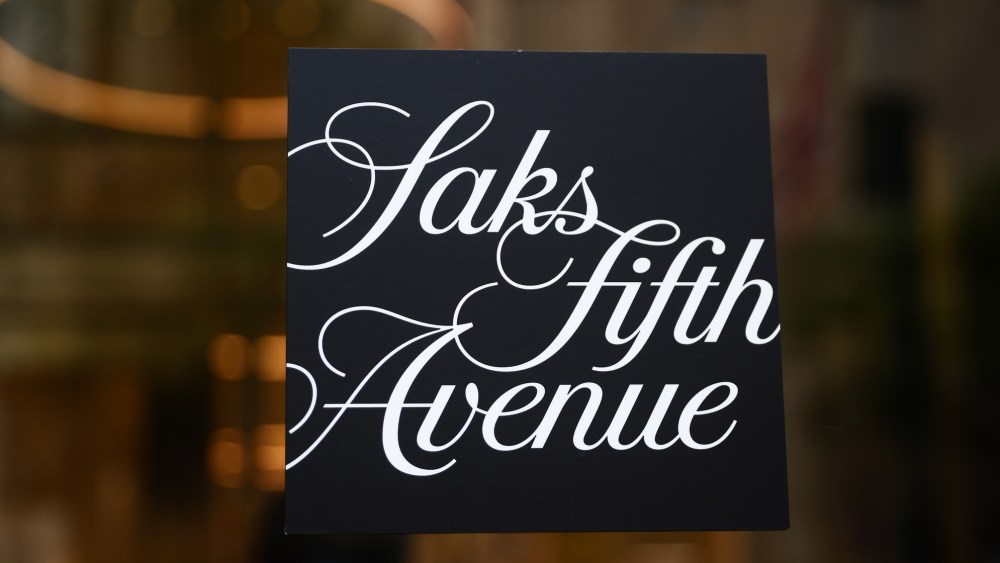Richard Baker has talked about buying Neiman Marcus Group ever since he acquired Saks Fifth Avenue over a decade ago.
Having succeeded at last, now he and his management team have to make the combined group work. The completion of the $2.7 billion deal, announced Monday, comes as Saks continues to struggle, delaying payments to vendors, and as Baker negotiated to lock up the financing.
But Baker, executive chairman, and Marc Metrick, chief executive officer, respectively, of the new Saks Global Group that combines the two luxury retailers, are aiming to shake things up a bit in the hopes that a new approach to retailing will yield stronger results. To lead the Neiman’s and Saks stores and e-commerce operations, Saks has created a single management structure with new leaders and senior positions and titles the industry hasn’t seen before, and fewer traditional roles, like no chief merchants.
“We are going to do things very differently,” Metrick told WWD. “You will not see some of the same traditional roles, like chief merchant. Saks Global plans to break the mold in how we go to market and how its business runs.”
You May Also Like

Metrick also underscored that Saks Global will adopt AI “in the right places for greater personalization and to maximize the customer experience.”
The agreement by Saks to buy the Neiman Marcus Group, effectively creating a luxury retail empire in the U.S., was revealed in July 2024. With the acquisition finalized, Saks Global now includes Neiman Marcus, Bergdorf Goodman, Saks Fifth Avenue and Saks Off 5th, and represents a total volume of approximately $10 billion.

Now the two men will face questions as to their strategy going forward, including how many stores Saks Global might close and how it will operate two retailers with distinctly different approaches. Saks split its e-commerce and brick-and-mortar operations pre-pandemic, while Neiman’s continues to operate as a single, omnichannel retailer. Neiman’s actually is financially the stronger of the two, sources said, with very little debt and operating at a profit. Its sales results are said to be about flat versus last year.
To close the deal, Saks Global, led by executive chairman Baker, pulled together some creative financing involving two tech giants, Amazon and Salesforce, and two apparel industry giants, G-III and Authentic Brands Group. Saks also secured a $2.2 billion bond.
The deal was a complicated one from the start, flanked by rumors before it was signed in July and dogged by drama as it was raced to its closing this week, according to sources.
At the start, Apollo was slated to help fund the acquisition with a $1.15 billion fully committed term loan. But as the fall wore on, there were increasing questions about whether or not the private equity giant would indeed be part of the deal, with some sources saying yes and some saying no. Part of the issue was the high interest rate being charged on the initial loans Baker was being provided in the deal — sources said it was initially set at 11 percent and with interest rates coming down he was anxious about finding cheaper financing.
But that piece of the deal was ultimately swapped out with $2.2 billion in junk bonds that were issued earlier this month.
Sources said the switch allowed parties involved in the transaction to renegotiate their part, with the various players negotiating concessions to stay in the transaction, causing a bit of a behind-the-scenes hubbub as the finish line approached.
Many of the financial players around the combination have been wary of both retailers, particularly of the Saks business given how slow it has been in paying vendors post-pandemic.
But now the company has a new angle, with fresh financing, new equity partners and a new business model to iron out with Neiman Marcus.
“The company has another chance to try to survive, to try to pivot,” said one person involved in the deal.
Whether all the risks pay off remains to be seen, as vendors watch carefully how the integration of Saks and Neiman’s progresses at a time when luxury brand sales have generally been soft.
Vendors will also be anticipating some change in how Saks handles its accounts payable. They want their money and want to know when they’ll get it. Saks has not paid many vendors for several seasons, though on Monday — after the closing of the deal was announced — Saks officials said that the process of catching up on the bill paying will begin in January.
Metrick told WWD that the transaction “recapitalizes the company and puts us in a much better cash position and much better position operating the business.”
Metrick also said that starting in January, “We will begin the process to work through the delayed payments. It will begin the first week of January. That’s when the process starts.”
Baker said in a statement, “This milestone transaction marks a transformative moment for Saks Global and the luxury retail industry. By uniting Neiman Marcus, Bergdorf Goodman and Saks Fifth Avenue, we have created an unparalleled multibrand luxury portfolio with tremendous growth potential. With data and innovation at our core and a portfolio of prime real estate, we aim to redefine the luxury shopping experience.”

In his memo to the team on Monday, a copy of which was obtained by WWD, Baker wrote: “I’m pleased to share that with the closing of the transaction, Saks Global has greater financial stability with less leverage and a newly funded revolving line of credit, providing significant levels of available liquidity. This financial structure enables us to make investments to better serve our customers and be a better partner to our vendors.
“With the closing of the NMG transaction, HBC’s Canadian business has been recapitalized as a stand-alone entity, separate from Saks Global, with significantly reduced leverage,” Baker wrote. “HBC will continue to operate Hudson’s Bay stores and TheBay.com, as well as continue to own or lease a 2 billion (Canadian) dollar real estate portfolio, either entirely or with its joint venture partner, RioCan Real Estate Investment Trust. With a new financial structure, HBC’s Canadian business will be set to execute on its business plan and best serve its loyal Canadian customers.”
Along with the announcement of the closing, Saks disclosed several fundamental changes in how Saks Global will operate and integrate the Neiman Marcus Group, as well as a flurry of executive changes at the top rungs of the enterprise and executive departures.
Saks and Neiman Marcus will be managed by one team, whereas Bergdorf Goodman will be managed separately, according to Marc Metrick, who takes on the role of CEO of the Saks Global Operating Group.
Also, Ian Putnam will serve as CEO of Saks Global Properties & Investments. Both Metrick and Putnam will report to Baker.
Emily Essner, forrmerly chief marketing officer at Saks, has been promoted to a new role — president and chief commercial officer, in which she will oversee the merchandising, marketing, commercial analytics and e-commerce for Saks and Neiman Marcus. “She’s got all things consumer-related,” Metrick told WWD in an interview Monday evening. “Her team will be supporting the Saks and Neiman’s stores and websites.”
Tracy Margolies, who was chief merchandising officer for Saks, has been appointed president of Bergdorf Goodman. She succeeds Darcy Penick. Margolies, who before joining Saks worked at Bergdorf’s, has been “a key partner of mine,” Metrick said. “Tracy’s deep expertise and track record of leading results-driven strategies will propel Bergdorf Goodman into the future while honoring its unique legacy. I am confident she is the right person to lead this storied business’ next chapter and look forward to what Bergdorf Goodman will accomplish under her leadership.

Others leaving Neiman’s as a result of the acquisition include Geoffroy van Raemdonck, NMG’s CEO; Ryan Ross, president of Neiman’s and head of NMG customer insights; Lana Todorovich, chief merchandising officer at Neiman’s, and Katie Anderson, NMG’s chief financial officer.
“The big takeaway first is that we believe there is a ton of talent at Neiman Marcus Group,” Metrick said. “When we get into the integration as we move forward, there will be a lot of cross-pollination between the companies.”
He pointed out that Bill Bine, NMG’s former chief supply chain officer, will fill the new role of chief transformation officer of Saks Global. “A highly strategic, results-oriented executive, Bill’s significant experience leading large-scale business transformation and operations in retail will be instrumental to our integration journey,” said Metrick.
Metrick also issued a memo, a copy of which was obtained by WWD, in which he wrote, “Bringing these iconic brands together is a significant step forward for luxury retail. As one company, we have an opportunity to transform the way we serve consumers, blending art and science to ensure each customer’s experience is unmistakably their own. With deep relationships across the industry, cutting-edge personalization and strategic technology partnerships, we are poised to drive innovation and growth. I look forward to working with the many talented leaders and employees from NMG and across Saks Global as we embark upon our journey to bring these businesses together.”
While the deal creates a luxury retail empire in America, it raises various questions about potential consolidations involving functions, stores and personnel. Asked about consolidations, Metrick replied, “This is about transformation, not consolidation. It’s about growth…There are redundant functions that are going to be rationalized. It will be a process we go through over time.”
As previously reported, Saks plans to close its store on Worth Avenue in Palm Beach, Fla., next year, and is closely reviewing the Saks and Neiman Marcus store fleets.
Other Neiman’s executives departing the business are Eric Severson, chief people, ESG and belonging officer; Ann Marie Janke, chief technology and information officer; Tiffin Jernstedt, chief communications officer, and Tom Mattei, chief legal officer, corporate secretary, chief compliance officer.
In January, Metrick is scheduled to host a Saks Global town hall for the newly combined organization. Details will be revealed soon.
Under the combined organization, Metrick has 11 senior officials reporting to him, including Bine, Margolies, and Essner as well as Kim Miller, president of Saks Off 5th; Rob Brooks, chief operating officer; Larry Bruce, president of stores for Saks and Neiman’s; Sarah Garber, chief people officer; Sarah Garber, chief people officer; ; Mike Hite, chief technology officer; Caroline McMurray, vice president of strategy; Jeff Pedersen, chief financial officer, and Andrew Woodworth, chief legal officer.
— With contributions from Evan Clark



